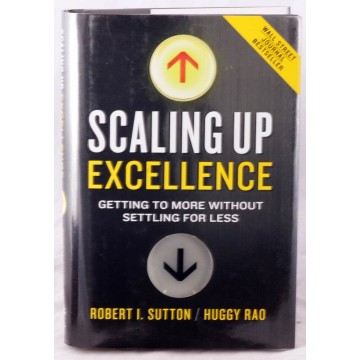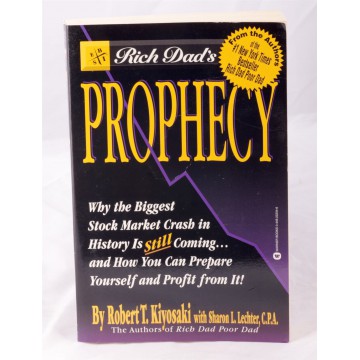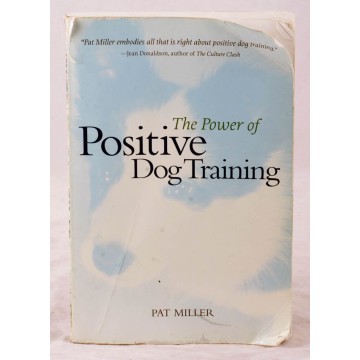Scaling Up Excellence by Robert Sutton and Huggy Rao (2014, Hardcover)
Reference: 335739734596

Payment Security

Delivery policy

Return policy
Scaling Up Excellence : Getting To More Without Settling For Less
by Robert Sutton & Huggy Rao
Wall Street Journal Bestseller and Financial Times "The pick of 2014's management books."
Bestselling author, Robert Sutton and Stanford colleague, Huggy Rao tackle a challenge that determines every organization’s success: how to scale up farther, faster, and more effectively as an organization grows.
Sutton and Rao have devoted much of the last decade to uncovering what it takes to build and uncover pockets of exemplary performance, to help spread them, and to keep recharging organizations with ever better work practices. Drawing on inside accounts and case studies and academic research from a wealth of industries-- including start-ups, pharmaceuticals, airlines, retail, financial services, high-tech, education, non-profits, government, and healthcare-- Sutton and Rao identify the key scaling challenges that confront every organization. They tackle the difficult trade-offs that organizations must make between whether to encourage individualized approaches tailored to local needs or to replicate the same practices and customs as an organization or program expands. They reveal how the best leaders and teams develop, spread, and instill the right mindsets in their people-- rather than ruining or watering down the very things that have fueled successful growth in the past. They unpack the principles that help to cascade excellence throughout an organization, as well as show how to eliminate destructive beliefs and behaviors that will hold them back
Scaling Up Excellence is the first major business book devoted to this universal and vexing challenge and it is destined to become the standard bearer in the field.
About the Author
Robert I. Sutton is professor of management science and engineering at Stanford University, where he is co-founder of the Center for Work Technology and Organizations, Stanford Technology Ventures Program, and Institute of Design (“the d.school”). Sutton was named as one of 10 “B-School All-Stars” by BusinessWeek, which they described as “professors who are influencing contemporary business thinking far beyond academia.” His books include The Knowing-Doing Gap (with Jeffrey Pfeffer), Weird Ideas the Work, and two New York Times bestsellers, The No Asshole Rule and Good Boss, Bad Boss.
Huggy Rao is the Atholl McBean Professor of Organizational Behavior, Stanford University, where he studies the social and cultural causes of organizational change. His honors include the W. Richard Scott Distinguished Award for Scholarship from the American Sociological Association and Sidney Levy Teaching Award from the Kellogg School of Management. He is the author of Market Rebels: How Activists Make or Break Radical Innovation,” Which Intel’s Andy Grove praised for providing “shrewd analysis” and an “aha moment.”
Author One-on-One: Robert Sutton and Huggy Rao talk about Scaling Up Excellence
Robert Sutton: Why don’t we start off with why we wrote this book?
Huggy Rao: We wanted to give the executives we teach and advise better answers. In 2006, we launched an executive education program at Stanford called Customer-focused Innovation. Executives in the program kept asking us different versions of the same question. Their companies all had a pocket or two where people were customer focused. The problem was that there just wasn’t enough of it. They asked how they could spread such excellence and do it fast. We scoured academic research and practical books on leaders and teams. We found a lot on topics such as leadership and innovation. But we couldn’t find a single business book devoted to this problem, which we started calling “the problem of more” or the challenge of “scaling up excellence.”
We spent the next seven years studying and writing about it. I believe that this is the first major business or leadership book on scaling. We worked hard to write an approachable and useful book, but also one that digs into this vexing challenge in some depth. We offer much hard won advice, but no instant and easy cures.
Bob, why don’t you tell people about our research? It was quite an adventure.
RS: We started by doing interviews and case studies, and digging up the most rigorous studies we could find on scaling. But we also wanted to reach out to people who were in the thick of scaling challenges. So we checked repeatedly with senior leaders such as Kaiser Permanente’s Louise Liang (who led a successful information technology rollout in the largest U.S. private healthcare system), Facebook executive’s Chris Cox and Mike Schroepfer (who grew the engineering organization), and JetBlue Airlines pilot and executive Bonny Simi (who led a bottom-up effort to create and scale up a better system for dealing with operational challenges caused by bad weather). We wanted to make sure that the challenges we discussed, the stories we told, and advice we offered rang true to these and hundreds of other scaling up veterans we talked to during those seven years.
HR: What do you say when people ask you “what do you mean by scaling?”
RS: I tell them that we fixed our focus on a simple, but tough, question: If your organization has a bit of excellence, a pocket of goodness, how do you spread it? Early on in the project, I saw an interview with the famous folk singer Pete Seeger. He said something like “Sometimes the only thing wrong with it is there isn't enough of it.” A lovely way to describe the main problem we tackled.
HR: I was struck by how similar the scaling challenges were that different organizations faced. The challenges of growing Google, of opening 180 highly standardized Bridge International Academy schools for poor children in Africa, and spreading practices for preventing infections to over 3000 hospitals sound quite different on first blush. But they turned out to be remarkably similar in many ways once we looked closely.
RS: How so?
HR: In every case, successful scaling didn't mean just creating as big a footprint as possible, as fast possible – it required spreading a shared mindset that guided how people thought and acted. We learned that, especially in cases of fast and effective scaling, the teams that guided these efforts often slowed down at key junctures – to think about what they are doing and to develop true excellence – so they could move faster later. Scaling takes both patience and persistence, in concert with an obsessive focus on making progress toward long term goals every hour of every day.
RS: We also learned that the key decisions and scaling principles were remarkably similar across different kinds of organizations. For example every organization and project gets more complex as it expands. More processes, layers, locations, and people are required. As a result, scaling nearly always adds “cognitive load” -- increased demands -- on people and teams. If it is not dealt with well, people feel overwhelmed. It becomes hard to get simple things done. In the best organizations, to paraphrase Twitter’s head of engineering Chris Fry, leaders use the hierarchy to destroy bad bureaucracy -- to make things easier rather than harder for people. Fry’s advice holds in every scaling case we studied.
RS: Let’s end with the question that EVERYONE asks me about you. Is your name really Huggy?
HR: My real name is Hayagreeva, but my family and friends have always called me Huggy. I thought “Huggy” would be easier for people to pronounce and remember.
RS: It’s been quite a collaboration. Huggy was relentlessly optimistic during even the toughest days. Huggy is among the smartest and most imaginative organizational researchers on the planet. The rate at which he generates ideas astounds me. One minute he might be talking about “linking hot causes to cool solution,” the next “scaling is about going from bad to great, not so much good to great.”
We worked with so many terrific people facing scaling challenges, from entrepreneurs and startups, to senior executives at big corporations, to leaders and teams in nonprofits and large healthcare systems. But we stayed focused on one goal: Writing a book would ring true and be useful to anyone who strives to develop excellence in organizations and spreading it to others.
Photos are of the actual book you will receive unlike books frequently sold elsewhere by used book resellers.
Don't be surprised with a poor quality book (such as recycled library books). Buy from OKDnet Emporium with confidence.
Please refer to all photos as they are part of the description and stated condition.
Sale is for described item only. Props seen in photos are not included. If uncertain, please ask before ordering.
Data sheet
- Author
- Huggy Rao
Robert I. Sutton - Book Title
- Scaling Up Excellence : Getting to more Without Settling for Less
- Format
- Hardcover
- Genre
- Business & Economics
- Intended Audience
- Adults
Trade
Young Adults - Item Height
- 1.2 in
- Item Length
- 8.5 in
- Item Weight
- 17.2 Oz
- Item Width
- 5.8 in
- Language
- English
- Number of Pages
- 368 Pages
- Publication Year
- 2014
- Publisher
- Crown/Archetype
- Topic
- Entrepreneurship
General
Leadership
Management
Personal Success
Product Reviews / Q&A
-
Reviews (0)
-
Questions & Answers (0)
-
Latest
-
Latest
6 other products in the same category:
Product Reviews / Q&A
-
Reviews (0)
-
Questions & Answers (0)
-
Latest
-
Latest























